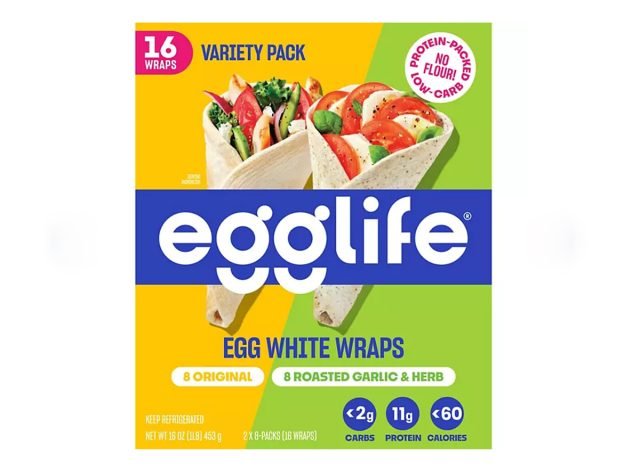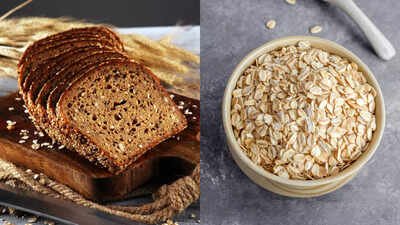Australian women who eat mainly in line with Australian Dietary Guidelines or a Mediterranean-style diet* are 40 per cent more likely to live until their mid-to-late 70s than those with poorer diets, according to the country’s largest analysis of women’s long-term dietary data published today in The Journal of Nutrition.1
The national review looked at dietary intake and health outcomes over a period of 17 years for a group of 9,584 women enrolled in the 1946 – 1951 cohort of the Australian Longitudinal Study on Women’s Health (ALSWH)**. Participants were aged 74-79 when the final data was collected. The research was jointly conducted by The George Institute for Global Health and the University of Newcastle, Australia.
The most significant finding overall was that diets better aligned with current Australian Dietary Guidelines or with a Mediterranean-style diet had a 40 per cent lower risk of death compared to those with poorer diets; however, specific links between diet type and cardiovascular disease (CVD) and dementia were less clear. The leading causes of death in the study were cancer related.


Lead author, Senior Research Fellow in Food Policy at The George Institute for Global Health and Conjoint Lecturer at UNSW Sydney, Dr Briar McKenzie said most people were now familiar with the dominant advice that a diet made up of mainly lean proteins, fresh fruit and vegetables, whole grains and pulses was good for us.
“But this is the largest study to show a clear link between this type of eating pattern and length of life in Australian women,” she said.
“There has been limited research focusing on the effects of diet on the health of women specifically and with this new large, long-term study, we have been able to fill in some of the gaps.
“The findings confirm that better quality diets are associated with a lower risk of death from any cause – or all-cause mortality – compared to diets that are higher in discretionary foods,” Dr McKenzie said.
The research team was surprised to discover only a limited relationship between diet quality and the two main causes of death for women in Australia – dementia and heart disease.
“This study is an example of the need for more female-focused research or separating data by sex, to better understand the causes and outcomes of diseases like heart disease in women specifically. A lot of nutrition research to date pools information together for women and men, which muddies the waters and makes it difficult to target diet advice by sex,” Dr McKenzie said.
“As the population ages, and incidence of heart disease and dementia increases, this relationship for women may become significant and would therefore be important to understand and monitor.”
In 2022, 61 per cent of Australian women were living with overweight or obesity, and more than 2.6m women over 15 are living with some form of endocrine, nutritional or metabolic disease (including Type 2 diabetes).2,3


Co-author of the study Laureate Professor Clare Collins, Professor of Nutrition and Dietetics at the University of Newcastle and member of HMRI’s Food and Nutrition program said their study showed healthy dietary patterns based on cooking fresh food at home were best for women overall.
“Unfortunately, we also know that women are relentlessly targeted in their social media and in advertising spruiking unproven diets or supplements. If a fad diet makes promises that sound too good to be true, they most likely are. Aim to adopt eating patterns aligned with the general principles of the Australian Dietary Guidelines or a Mediterranean-style dietary pattern.
“Of course, it’s also important that women with other risk factors, for instance a family history of heart disease, hypertension, iron or other deficiencies, or diseases like osteoporosis, receive tailored nutrition advice from a qualified healthcare professional such as an Accredited Practising Dietitian,” Professor Collins said.
Dr McKenzie and colleagues have previously gathered evidence to show that Australia’s increasingly “obesogenic” food environments may negatively affect women in particular ways, and feel the subject warrants more investigation, as the incidence of diet-related disease continues to rise.4
Women are often the main gatekeepers of nutrition for families, doing a lot of the shopping, cooking and preparing food. Yet they are also time poor, with many other responsibilities, which makes packaged foods – increasingly more accessible and more affordable than fresh food – a convenient option.
“There is a case for the food industry and the government to do more to support women to sustain healthy dietary habits, including reviewing things like portion sizes, ultra-processed content and marketing policies, through a sex and gender lens,” Dr McKenzie said.
Australian Dietary Guidelines
The Australian Dietary Guidelines are currently under review. At this stage, there is no stated intention to focus on women’s dietary needs across their life-course, rather than just in relation to their reproductive stages, including in terms of the leading causes of death for women, many of which are diet-related.
The leading causes of death in the study population were breast cancer (85 women or 13 per cent of deaths) and lung cancer (80, 12 per cent). Cause of death for 56 women (8.5 per cent of deaths) were identified as CVD-related, and 19 (2.9 per cent) had dementia recorded as a primary cause of death. Participants were in their 50s at the start of this study and in their 70s at completion.
Mediterranean-style diet


* A Mediterranean-style diet is characterised by meals built around vegetables, fruits, herbs, nuts, beans and whole grains and moderate amounts of dairy, poultry and eggs.
Australian Longitudinal Study on Women’s Health
** The Australian Longitudinal Study on Women’s Health is the largest, longest-running project of its kind ever conducted in Australia. The population-based survey explores the factors contributing to the health and wellbeing of over 57,000 Australian women in four cohorts. Their data provides invaluable information about the health of women across the lifespan. Since its inception in 1996, ALSWH has informed federal and state government policies across a wide range of issues. The Australian Government Department of Health and Aged Care funds the study, and it is jointly managed by the University of Newcastle and University of Queensland.
About the research
The study aimed to evaluate the relationship between diet quality – in relation to similarities with the Australian Recommended Food Score (ARFS) based on the Australian Dietary Guidelines, Mediterranean Food Score (MDFS) based on a Mediterranean-style diet, and unhealthy diets classified by higher consumption of discretionary foods and lower in fruit and vegetables, protein and cereals – and all-cause mortality, cardiovascular disease and dementia in women.
Participants were asked to report their food and drink consumption over the past 12 months, during the baseline survey in 2001, using the Victorian Cancer Council’s ‘Dietary Questionnaire for Epidemiological Studies – version 2’ Food Frequency Questionnaire, comprising 120 questions and validated for use in mid-aged Australian women. Health outcomes were consolidated from multiple sources, including linked hospital data, aged care data and death registries. The last point of recording outcomes was in 2020.
Dr Briar McKenzie’s work on this study was funded by a 2022 Postdoctoral Fellowship from the Heart Foundation. Professor Clare Collins’ work is supported by an NHMRC Fellowship and Investigator grant.








